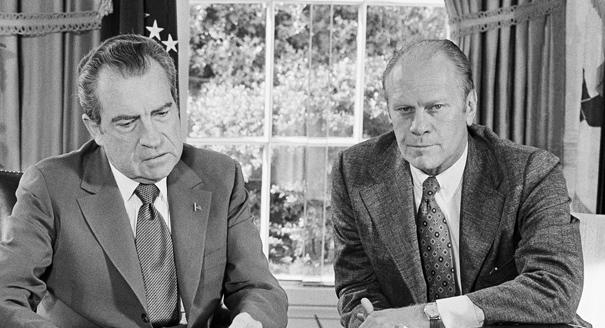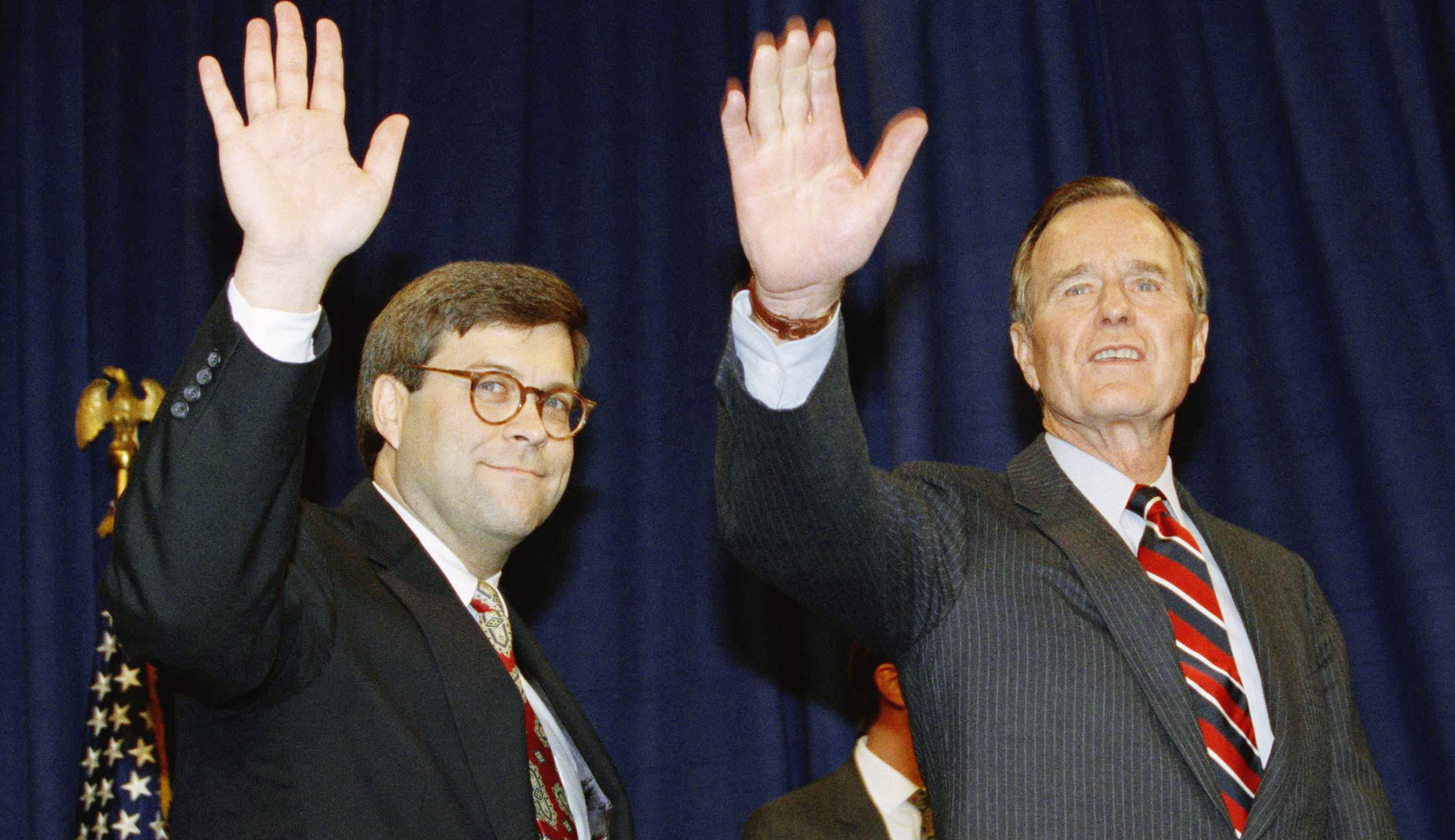Among all of the powers that come with the Oval Office, the ability to pardon remains one of the most sweeping, and controversial, forces a commander in chief can hold.
Pardons, or clemency, allow those convicted of a crime to be relieved of all or some of the legal consequences that come with the conviction. Presidents can grant them in the name of perceived injustices, to combat corruption, or contentiously, even to weigh favor with their political circles.
Presidents have few limits when it comes to the power to pardon, except that they can only be issued for a federal crime, and they can’t be used for impeachment cases tried and convicted by Congress.
Presidents have long stirred the pot with pardons, many of which went to notorious figures in history, relatives of sitting presidents, and some even to fellow holders of the Oval Office, such as when President Gerald Ford pardoned his predecessor, Richard Nixon.
As President Trump prepares to exit the Oval Office and chatter of him pushing eleventh-hour pardons in his final month increases, including a potential pardon for himself, here is a deep dive into the most controversial, famous, and notable pardons of the past five decades.
Nixon administration (1969-1974)
Jimmy Hoffa — Hoffa was a prominent labor leader who disappeared in 1975, four years after he was pardoned by Nixon. While Hoffa was serving as the president of the International Brotherhood of Teamsters, he was convicted of several crimes, including jury tampering, attempted bribery, conspiracy, and mail and wire fraud, according to the Detroit Free Press.
Hoffa was serving a 15-year prison sentence for jury tampering and fraud when Nixon pardoned him on the condition that he “not engage in direct or indirect management of any labor organization” for at least nine years. Hoffa agreed to the condition and supported Nixon’s 1972 reelection bid.
At a restaurant in Bloomfield Township, Michigan, Hoffa made a call to his wife from a pay phone, saying he had been stood up at a lunch meeting with two mobsters. He hasn’t been heard from since that day.
His life story was later made into the film The Irishman, directed by Martin Scorsese. The film, starring Robert De Niro, Al Pacino, and Joe Pesci, follows Frank Sheeran on his journey getting involved in organized crime and working for Hoffa.

Ford Administration (1974-1977)
Richard Nixon — On Sept. 8, 1974, Ford relieved his predecessor, Nixon, of any crime he may have committed or participated in while in office. Ford later defended the move in a highly unusual appearance before the House Judiciary Committee, saying he wanted to end the divisions caused by the infamous Watergate scandal that drove Nixon from office. Aggressive reporting by the Washington Post following a 1972 break-in at the headquarters of the Democratic National Committee revealed multiple abuses of power by Nixon. The 37th president resigned, facing virtually certain impeachment by the House and conviction and removal from office by the Senate.
Robert E. Lee — Confederate Gen. Robert E. Lee was posthumously restored his full rights of citizenship after an archivist discovered his lost Oath of Allegiance. The revelation of the oath set in motion a five-year congressional effort to restore citizenship to Lee, who died stateless, according to federal archives.
“Gen. Lee’s character has been an example to succeeding generations, making the restoration of his citizenship an event in which every American can take pride,” Ford said at the signing ceremony on Aug. 5, 1975, 110 years after Lee’s surrender at the Appomattox Courthouse in southern Virginia ended the Civil War.
Carter Administration (1977-1981)
Folk singer Peter Yarrow — On his last full day in office, President Jimmy Carter pardoned folk singer Peter Yarrow of the group Peter, Paul, and Mary, which rose to fame in the 1960s.
According to United Press International archives, Yarrow was convicted in 1970 of “taking indecent liberties with a minor” involving a 14-year-old girl. He was sentenced to three months in jail on Sept. 14, 1970, which was later reduced to time already served on Nov. 25.
When asking the Justice Department for a pardon, Yarrow cited his desire to have his voting rights restored as well as the need to tell his children, who were aged 8 and 9 at the time, about his conviction.
“A presidential pardon would help my children to understand that society has forgiven their father. A pardon might offset the sense of shame that they will inevitably feel. You would make this potentially painful time easier for the whole family,” Yarrow wrote in his petition.
Yarrow was pardoned on Jan. 19, 1981.
Vietnam War draft dodgers — In 1977, Carter fulfilled a campaign promise to grant unconditional pardons to hundreds of thousands of men who evaded the draft during the Vietnam War. Like the war itself, the move was met by a divided public.
Reagan Administration (1981-1989)
Mark Felt, aka “Deepthroat” — Mark Felt, once the second-highest-ranking official at the FBI, is probably the most famous anonymous source in U.S. history. Better known as “Deepthroat,” Felt helped bring down Nixon by refusing to help cover up the Watergate scandal, feeding information to famed Watergate sleuth Bob Woodward of the Washington Post.
President Ronald Reagan pardoned Felt and Edward Miller, another former top official at the FBI, over convictions of conspiring to violate the constitutional rights of U.S. citizens. The two had authorized federal agents to break into homes in search of anti-war radicals in the early 1970s, according to the New York Times archives. After the pardon, Nixon sent Felt a congratulatory bottle of champagne.
Yankees owner George Steinbrenner — On his final day in office, Reagan gave one of his last pardons to New York Yankees owner George Steinbrenner, who was convicted over illegal contributions to Nixon’s 1972 campaign. Steinbrenner was convicted over the violations in 1974 and was fined $15,000.

George H.W. Bush Administration (1989-1993)
Iran-Contra defendants — On Christmas Eve, 1992, President George H.W. Bush granted pardons to six defendants involved in the Iran-Contra affair, including former national security adviser Robert McFarlane and former Defense Secretary Caspar Weinberger.
The Iran-Contra affair regarded the secret sale of weapons to Iran in exchange for the release of U.S. hostages held in Lebanon by pro-Iranian terrorists. The money from the sales would be used to support anti-communist resistance fighters in Nicaragua, known as “Contras.”
Current Attorney General William Barr, during his first stint in the job during the final 15 months of the Bush 41 administration, pushed for the decision at the time and continued to defend his support for the pardons years later when he returned to the highest office in the Justice Department.
“The big ones — obviously, the Iran-Contra ones — I certainly did not oppose any of them,” Barr said of the Bush pardons, according to NPR.
Clinton Administration (1993-2001)
Patty Hearst — The granddaughter of newspaper tycoon William Randolph Hearst became recognized around the globe after she was kidnapped at age 19 by eight members of a revolutionary terrorist group, the Symbionese Liberation Army.
Hearst lived in a cupboard at a safe house for 57 days, blindfolded while enduring sexual assault and repeated rape. She was later accused of taking up her captors’ cause when she was photographed and later convicted of taking part in an armed robbery at a San Francisco bank.
Hearst was imprisoned for nearly two years before Carter commuted her sentence, setting her free. In 2001, she was fully pardoned by President Bill Clinton.
Marc Rich — One of Clinton’s most controversial pardons was for financier Marc Rich, who had evaded over $48 million in taxes. Rich was charged with 51 counts of tax fraud and for running illegal oil deals with Iran during the 1979-1980 hostage crisis, according to TIME. In his last week in office, Clinton pardoned Rich, who fled the United States during his prosecution and was living in Switzerland.
Because Rich’s wife had given generous donations to the Clintons, an investigation was sparked to see if his pardon was bought, but investigators didn’t find enough evidence to charge the president on that allegation.
Roger Clinton Jr. — Prior to leaving office in 2001, Clinton didn’t forget to issue a controversial pardon to his younger half-brother, Roger Clinton Jr., for a 1985 cocaine possession and drug-trafficking conviction. Shortly after the pardon, Clinton Jr. was arrested in 2001 over suspicion of drunken driving in California but plead guilty instead to the misdemeanor charge of reckless driving. Clinton Jr. was later charged with a DUI in 2016.
George W. Bush Administration (2001-2009)
John Forte — Hip-hop artist John Forte was among the most well-known of President George W. Bush’s commutations. The Grammy Award-winning artist served seven years of a 14-year sentence for transporting a suitcase filled with over $1 million worth of cocaine.
However, most of Bush’s 200 clemency grants went to anonymous, nonviolent offenders for old crimes, according to Politico.

Obama Administration (2009-2017)
Chelsea Manning — Military whistleblower Chelsea Manning was one of President Barack Obama’s most controversial and well-known clemency grantees. Manning was sentenced for 35 years in prison for leaking a significant amount of military intelligence records, which critics said put national security at great risk.
She was known as 22-year-old Bradley Manning at the time of the leak, which included 750,000 military files and cables to WikiLeaks, including battlefield footage.
The Obama White House said it believed Manning had accepted responsibility, served time, and expressed remorse for her actions, according to NBC News.
“I feel very comfortable that justice has been served,” Obama told reporters at his final White House press conference in 2017, regarding his decision to pardon Manning.
Manning’s pardon was met with ire by several Republicans like then-House Speaker Paul Ryan, who called the move “outrageous,” and Trump, who referred to Manning as a “traitor.”

Trump Administration (2017-2021)
Bernard Kerik — After Obama had denied a pardon request from former New York City Police Commissioner Bernard Kerik, Trump granted the top cop a pardon earlier this year.
Kerik, who led the city’s police department during the Sept. 11 terrorist attacks, was sentenced to four years in prison in 2010 after pleading guilty to eight felony charges related to tax fraud and making false statements to government officials.
Reflecting on his pardon, Kerik told the Washington Examiner earlier this year that he was surprised by Trump’s decision when he received a call from the president.
“We said hi. And he said, ‘Bernie, listen, as I’m speaking to you, I’m signing a presidential pardon on your behalf, and this will expunge your record — give you the opportunity to move on with your life.’ I said, ‘Thank you,'” Kerik said.
Alice Marie Johnson — Alice Marie Johnson, 65, became an inspiration for the Trump administration’s First Step Act, a signature bipartisan legislation on criminal justice reform.
Johnson began serving time in prison in 1996 for being involved in a nonviolent drug conspiracy. She was sentenced to life in prison plus 25 years, despite it being her first offense. She served for 22 years until Trump commuted her sentence in 2018. She received a full pardon this year.
Johnson’s pardon was praised on both sides of the aisle. The grandmother has become a vocal advocate of criminal justice reform and spoke of her experience at the 2020 Republican National Convention.
Michael Flynn — Trump announced a Thanksgiving gift to his former national security adviser Michael Flynn this year, issuing him a full pardon after a strong Republican-led push advocating for his clemency.
The 61-year-old retired U.S. Army lieutenant general pleaded guilty in December 2017 for lying to investigators about conversations he had with the Russian ambassador to the U.S. during the presidential transition period in 2016.
Lawmakers’ reactions to the pardon fell largely on party lines, with Republicans celebrating the move and Democrats painting it as an abuse of the presidential pardon power.
Flynn thanked the country upon receiving the pardon just a day before the Thanksgiving holiday.
“This ‘Pardon of Innocence’ is historic, sincerely appreciated & should never happen in our country again,” Flynn said.

